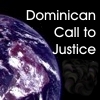 |
Sinsinawa Dominicans Take Stance against Human Trafficking
"We hope our stance will encourage others to join in efforts to combat trafficking," said Prioress Patricia Mulcahey, OP. "It is incompatible with the values of the Gospel. In accordance with our commitment to building a holy and just society, we oppose it and stand in solidarity with all who work to eliminate this tragic evil." Through this corporate stance, the Sinsinawa Dominicans pledge to educate themselves regarding the magnitude, causes and consequences of human trafficking through prayer and study; educate others about this terrible abuse through preaching and teaching; and work for change in society by supporting anti-trafficking legislation. "Girls between ages 13 and 18 constitute the largest group within the sex industry," said Sister Reg McKillip, OP, Sinsinawa Dominican Promoter of Peace and Justice. "With the fear of HIV/AIDS, customers soliciting sex have driven traffickers to seek out younger victims, thinking they are too young to have been infected. "The victims of trafficking pay a horrible price. Death of course is the highest cost. Victims are subject to gross human rights violations including rape, torture, beatings, starvation, dehumanization and threats of murdering family members," said Sr. Reg. Thirty-four states have enacted laws making trafficking a felony offense.
|
Related Links
|


 SINSINAWA, Wis.--Nearly 20,000 people, mostly women and children,
are trafficked into the United States each year according to U.S.
government estimates. Worldwide, the number increases to nearly
1 million. The Sinsinawa Dominican Sisters call for an end to this
violent, inhumane practice of the buying and selling of people
for any purpose, including sex, prostitution, forced marriage,
servitude, and forced labor. The Sisters have taken a corporate
stance opposing human trafficking.
SINSINAWA, Wis.--Nearly 20,000 people, mostly women and children,
are trafficked into the United States each year according to U.S.
government estimates. Worldwide, the number increases to nearly
1 million. The Sinsinawa Dominican Sisters call for an end to this
violent, inhumane practice of the buying and selling of people
for any purpose, including sex, prostitution, forced marriage,
servitude, and forced labor. The Sisters have taken a corporate
stance opposing human trafficking. 